In today’s technology-driven society, effective access to and use of information is a key enabler for progress. Driven by the demands for knowledge-based applications and the unprecedented availability of information on the Web, the study of knowledge capture is of crucial importance. Knowledge capture involves the extraction of useful knowledge from vast and diverse online sources as well as its acquisition directly from human experts.
Researchers and practitioners who work in the area of knowledge capture traditionally participate in several distinct communities, including knowledge engineering, machine learning, natural language processing, humancomputer interaction, artificial intelligence, and the Semantic Web. K-CAP 2013 will provide a forum that brings together members of disparate research communities who are interested in efficiently capturing knowledge from a variety of sources and in creating representations that can be useful for automated reasoning, analysis, and other forms of machine processing, as well as to support users in knowledge-intensive collaborative tasks.
In addition, the wealth of information available and generated on the Web, both in structured, linked data forms and in unstructured information sources, brings the need for new methods to make knowledge emerge from such sources, following the recent democratisation, and somehow industrialisation, of areas such as open data, linked data and the Semantic Web. Such new methods must draw both from the traditional knowledge acquisition techniques and from more computational approaches, from large-scale data-mining, statistical analysis, data analytics, etc. For this reason, we are making the special theme of the K-CAP 2013 conference:
Knowledge Capture in the Age of Massive Web Data
This will be reflected both through encouraging paper submissions showing works on the way to deal with the scale, but also the distribution, heterogeneity, incompleteness, inconsistency and variety of both sources and results when trying to make knowledge emerge from massive Web data, including data published on the Web, as well as generated through the Web.
We will also, for the first time in the K-CAP conference series, introduce a special Application Track, where submissions are invited to present results tested and deployed in real-life settings. The application track will pay special attention to in-use applications for the generation, management, and reuse of large amounts of existing data and knowledge resources on the Web. Data and knowledge-intensive applications in a variety of domains are welcome, including the Web of Data, mobile and sensor networks, large-scale scientific data management and reuse, open government and e-participation, social networks, and enterprise data management and business intelligence. We encourage submissions in such domains, dealing with topics including: big data capture, representation and analytics, crowd-sourcing for data generation and problem-solving, hybrid approaches combining knowledge engineering and machine learning, data and service dynamicity, heterogeneity and decay, and innovative user interfaces. Especially interesting are applications with available datasets and in-place data-driven business models.
K-CAP 2013 follows on the success of six previous conferences in 2011 (Banff, Canada), 2009 (California, USA), 2007 (Whistler, Canada), in 2005 (Banff, Canada), in 2003 (Florida, USA), and 2001 (Victoria, Canada), and of the series of Knowledge Acquisition Workshops (KAW), the first of which took place in the same location (Banff, Canada) in 1986, with the aim to promote multi-disciplinary research that could lead to a new generation of tools and methodologies for knowledge capture.
Submissions
The Seventh International Conference on Knowledge Capture, K-CAP 2013 will feature Invited Talks, Research Papers, Application Papers, Workshops, Posters and Demos on a range of topics. Due to the special theme of the conference this year, we especially encourage submissions of research and industry papers on the topics of:
- Statistical analysis from Web data
- Impact on data-mining of Web-scale linked data
- Machine learning from multiple Web sources
- Hybrid approaches for knowledge capture combining knowledge engineering and machine learning
- Computational approaches to data management for knowledge capture
- Data dynamicity, heterogeneity, and decay in knowledge intensive systems
- Data provenance in knowledge capture
Submissions on more general topics, traditionally covered by the conference, are highly encouraged, including but not restricting to:
- Knowledge acquisition
- Knowledge authoring
- Knowledge extraction
- Knowledge management
- Knowledge capture for the Semantic Web and the Web of Linked Data
- Knowledge publication
- Collaborative and social approaches to knowledge management and acquisition
- Crowdsourcing for knowledge capture and refinement
- Knowledge Capture from Social Environments and Contexts
- Mixed-initiative planning and decision-support
- Problem-solving knowledge and methods
- Knowledge-based markup techniques
- Knowledge engineering and modelling methodologies
- Narrative intelligence
- Knowledge capture through storytelling
- Learning by reading
- Provenance and trust issues in knowledge intensive systems
For the application track, we encourage submissions of concrete applications in all the topics of the conference, as mentioned above. Submissions to the application track should present applications, tools or environments which have been effectively deployed and used by their target audience. Accepted application papers will be presented at the conference and should also take part in the demo session.
Both regular papers and application papers should be submitted through easychair (using https://www.easychair.org/conferences/?conf=kcap2013 for research papers and https://www.easychair.org/conferences/?conf=kcap2013applications for application papers) and be formatted according to the ACM format (2 column SIG Conference Proceedings template) . Regular (research) papers should not be longer than 8 pages, including references. Applications papers are limited to 4 pages.
Deadlines
(for both the research and the application tracks)Abstract submission: February 8, 2013
Full paper submission: February 15, 2013
Author notification: March 29, 2013
Camera ready version due: April 24, 2013

